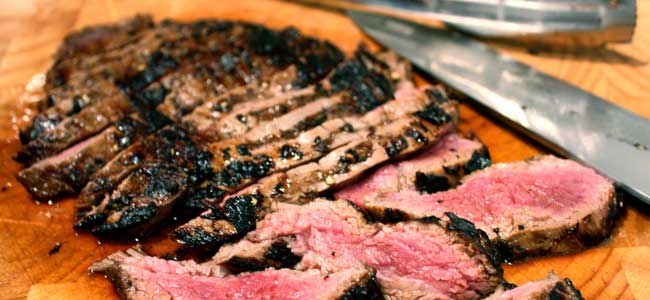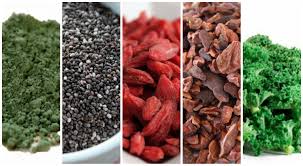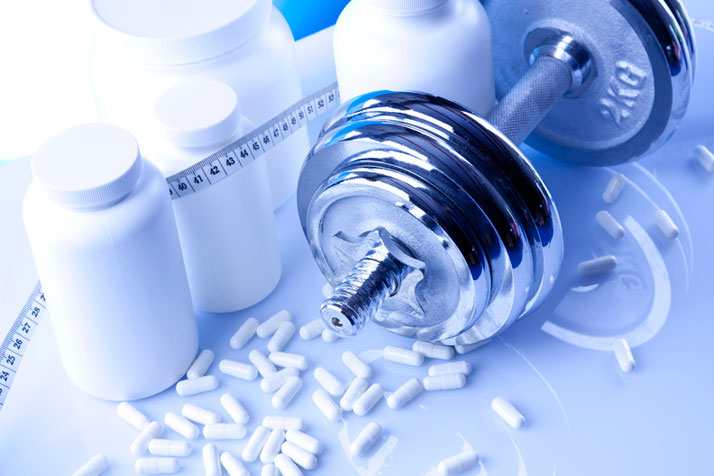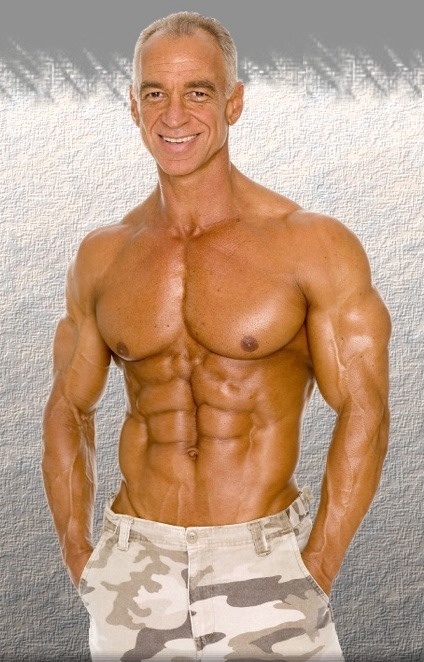The world thinks you’re a moron.
A superficial fool. An insecure, overgrown adolescent.
All because you want to be lean and muscular as you get older.
What you “should” be doing, they say, is eat and exercise to “be healthy.” Presumably to maintain your ability to pee straight and not require a motorized scooter to cruise thru Costco.
While I exaggerate of course, it’s the underlying “trade the weights for shuffleboard” message I take exception to, for two reasons.
Number one, it’s boring. You only get to go around this rock once — I wanna do it sporting an arm pump from the workout I just finished.
Number two, since when are being lean and muscular and being healthy mutually exclusive?
Certainly the extreme ends of the muscle building game are anything but healthy, both physiologically and psychologically.
But the core practices of the musclehead lifestyle are perfectly aligned with health and longevity. They just require a few tweaks with each passing decade.
My last post covered how to approach training – exercises, sets, reps, weights, and some restorative practices — when you’re a bit older. Now I’m going to cover nutrition and supplementation. Lets get going.
Mythbusting
The media pushes that once you hit a certain age you should trade your high performance diet for a colon-cleansing mix of wheat germ and sugar-soy Ensure shakes.
But should you eat differently once you cross 40? The answer is no. Except sort of. Because it depends.
First, let’s address the 800-pound silverback in the corner: your “slowing” metabolism.
Every guy that’s packed on 20 pounds of chunk will moan about how he used to be able to grocery shop from a vending machine and stay lean right until college graduation, when his metabolism suddenly went from a sprint to a crawl. But does that really happen?
In their textbook Exercise Physiology, authors Katch & McArdle (yes, the folks behind the Katch-McArdle calorie formula) confirm that people tend to get fatter with age – but also say “there’s probably no biological reason for it.”
In other words, the increases in bodyfat are more a function of inactivity than age.
So no, Frank the Tank, your extra chunk isn’t due to metabolic slow down – it’s that you used to skip class to shoot hoops for two hours before hitting the gym 5 days a week. Now you sit at a desk for 10 hours before driving home to hit the couch for 4 more.
Let’s not forget, inactivity also results in muscle loss. And while the metabolic “appetite” of extra muscle tissue is overstated, it does add up.
So you can see how “waking up one day and seeing a fat guy” could’ve been largely prevented if you’d continued training (and perhaps, graduated from beer to diet Snapple).
Next we have to dispel the myth that you can’t build muscle after 40 (or 45 or 50, or whatever).
Now age isn’t kind to your muscle building machinery — aging is associated with the development of something called anabolic inflexibility, or decreased muscle protein synthesis.
However, many studies have shown that older men can build muscle just fine, provided they follow a proper resistance program and not some geriatric nonsense pulled from the pages of AARP magazine.
What do I think? The biggest reason(s) older guys don’t get the same kind of gains as younger dudes is that most older, experienced lifters are either at or near their genetic limit, or are so beat up & immobile they can’t train very well.
Nutrition

Now let’s talk turkey old man.
You don’t need a special diet. The diet that builds muscle and keeps you lean when you’re 25 still works at 45. However, a modification or two may be required, depending on the stress and abuse you put your body through.
Get lean. I write about this often. If you’ve got a few pounds to lose and you’re over 35, getting lean should be priority number one.
For one, stuff just “works better” when you’re lean (the aforementioned muscle building machinery, due to improved insulin sensitivity and lower aromatase activity), you breathe better, move better, and the biggest thing – you feel like an athlete.
Guys often report that they never really felt like they “belonged,” that they were just another “dude that works out” – until they got lean. Suddenly all the time they put in started to “mean something” as the fruits of their labor were clearly visible.
If You Are Lean, Don’t Get Fat. Bulking up packs on muscle but is no longer an option after age 30 or so. Both for the physiological reasons mentioned earlier, and also because no one wants to see a 40 year-old dude in clown pants and boat-neck sweater. A modest 100-200 calorie surplus a day is a much more refined approach.
Watch Your Carbs. Carbs are finicky – an allotment that might make one person thrive can make another pass out face down into a plate of mashed potatoes. While it’s being fat that reduces insulin sensitivity and not age there’s still a strong case for adopting a lower to moderate carb diet as you get older.
Eating fewer carbs leaves more “room” for fat, such as monounsaturated fats found in olive oil, nuts, and avocado, and omega-3 fats, found in coldwater fish. The beneficial effects these fats have on lipids and cardiovascular health is well established. Don’t miss out.
Don’t Fall for Superfoods. But Eat More Superfoods. (See what I did there?). There are no magic foods that cure cancer or miraculously lead to 22-inch arms.
But there are foods that have unique and impressive nutrient profiles that should put them high on your radar. Blueberries are loaded with anti-oxidants. Pomegranate and avocado, which my friend and mentor Jim Brown turned me back onto, are strongly correlated with heart health and improved blood lipids. Don’t be a zealot. Just be curious.

Eat More Fiber. Dietary fiber is one the few things that your body requires more of as you age. While a fiber supplement is very helpful, getting more fiber in your diet is easy. A half-cup of raspberries, an apple, a banana, a ½ cup of oatmeal, and 3-5 servings of fibrous veggies is enough to get you well on your way.
Protein. There’s no reason to drastically reduce protein intake as you get older, especially if you are training hard. A gram per pound of bodyweight is a good standard. However, protein digestion can go south with age. See the next point.
Eat Your Bugs. Stress, restaurant meals, too much alcohol, and too much coffee can impair digestion, leading to acid reflux and heartburn. While “fixing” digestion is complicated and typically requires a physician, there are things you can do to prevent it from getting that far.
Along with stress reduction, learning to chew your food, and eating the occasional item that doesn’t come in a box with a bar code, eating foods rich in beneficial bacteria can help.
As registered dietitian Sarah Lewis notes eating high-quality, plain yogurt with live cultures is an easy, tasty way to add beneficial bacteria.
Another option is to eat more fermented foods, as they contain beneficial bacteria that thrive on the naturally occurring sugar or fiber in the food. Examples include sauerkraut (great on red meat), kefir, Kombucha tea, and kimchi, a staple in every 5-star North Korean all inclusive.
Recovery
 I made mention of restorative measures like deep breathing in part 1 but feel the subject needs another realistic, pragmatic recommendation for typical guys.
I made mention of restorative measures like deep breathing in part 1 but feel the subject needs another realistic, pragmatic recommendation for typical guys.
As a coach, telling a type-A corporate type to “de-stress” or even worse, to “meditate” is often met with a not-so-subtle eye roll.
“Sure, I’ll just shut down at 5pm and take time off for myself. Then I’ll lose my job, my house, and really need to de-stress.”
For these types, I have to work with their nose-to-the-grindstone work ethic, not try to undermine it.
This is where steady state cardio really shines. Doing 30 minutes of moderate intensity (110-140 bpm) cardio is not only healthy, it has an almost meditative effect on the mind, especially if performed outside in a relaxed mental state (i.e., you’re not riffing through your mental to-do list the whole time.)
According to my friend Mike T. Nelson, it also re-associates “stress” with “physical activity,” something that doesn’t happen when your boss yells at you while you sit at your desk or get stuck behind the wheel in daily gridlock.
Of course, I don’t tell these guys they’re doing it for restorative purposes. That’s too hippy-dippy. Instead I say it’s to “improve cardiovascular health” or “increase capillary density.”
Sometimes I even make shit up. “Steady state cardio will make you more explosive in your weight training sessions.” Whatever it takes to get a type-A guy to actually do it and reap the subtle benefits without sounding like Deepak Chopra.
Supplements

I don’t always recommend supplements, but when I do they’re to plug “holes” left in our modern, ultra rushed diet.
Healthy Fats. Fish oil, coconut oil, olive oil, and red palm oil are all healthy “supplemental” fats that should appear in everyone’s diet next to salmon, avocado, nuts, and seeds.
Zinc. This is important for guys as zinc acts as an aromatase inhibitor and helps reduce estrogen levels. It can also help with prostate issues. 10-50mg a day.
Magnesium. The relaxation mineral also improves insulin sensitivity and lowers blood pressure. 400-1000mg a day.
Curcumin. This might actually be a super-nutrient. Curcumin, found in the spice tumeric, has anti-cancer and anti-inflammatory properties, and even reduces lipid and plaque levels in arteries. Look for Meriva or BCM-95 form. 3000 mg/ day.
Resveratrol. This one sounded really promising as an anti-oxidant and anti-estrogen but the data has been kinda dubious. So feel free to substitute a glass of red wine in the evening. 250mg/day. Just stop at one glass you piss tank.
Vitamin D3. Whether by sun or by supplement, you want your Vitamin D3, 25-hydroxy levels on the high side of normal. Ask your doc to test your levels and zero in like a boss. 1000-5000iu/ day.
Fiber. Cause you need more as you get older. Great for digestion and blood sugar management. 20-50 grams a day.
Metformin. Finally, something controversial. Metformin is a big deal in the life extension community as an anti-inflammatory as it lowers circulating insulin levels. Interestingly, it was a hair away from being classified a dietary supplement but alas now requires a script from your doctor. 500mg twice a day.
Verify Testosterone Levels
While the nuances of TRT are beyond both this article and my scope of competency, if you’re over 35 and symptomatic of low testosterone it’s something you should strongly consider speaking to your physician about. Why see life in muted shades of grey when you could see it in vibrant color?
That said, if still on the younger side of the fence, I’d still exhaust diet and lifestyle interventions first (more sleep, less stress, more dietary fat, etc.) as T therapy, when done correctly, is for life. Not to mention adopting a more “T-friendly” lifestyle is ridiculously healthy and will make the therapy that much more effective. This is a fantastic book on the subject.
Forget Father Time
There’s a lot more to how you feed your body to be lean and muscular as you get older – but not much more.
What works when you’re young and full of spunk still works when you’re older and wiser. You just have to work a bit smarter and with a lot more focus.
But hey, you’re no moron. You can do it.

